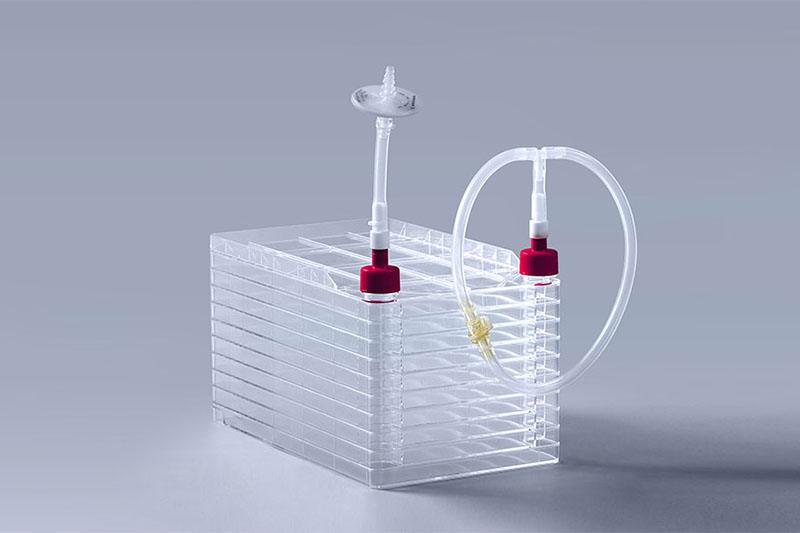The purpose of surface TC treatment in cell factory systems is to improve conditions for cell attachment and growth and to increase the efficiency of cell processes. Here are some of the main reasons for surface TC treatment:
1. Improve cell attachment: Surface TC treatment can form a layer of coating or matrix on the surface of the matrix of the cell factory, providing a suitable environment for cell attachment. This coating is usually a highly biocompatible material, such as collagen, gelatin or polylactic acid, which can be used for surface treatment of cell culture media. Through surface TC treatment, cell adhesion factors, growth factors and extracellular matrix components required for cell adhesion can be provided, thereby enhancing the interaction between cells and the matrix, and facilitating the attachment and growth of cells in the factory.
2. Promote cell proliferation: Surface TC treatment can provide suitable surface properties required for cell division and proliferation. For example, some surface coatings have textures or microstructures that mimic the natural tissue environment to which cells are exposed, thereby promoting cell proliferation and expansion. In addition, appropriate surface TC treatment can also regulate the shape, size and division activity of cells by changing the physical and chemical properties around the cells.
3. Improve cell process efficiency: Through surface TC treatment, the efficiency and yield of cell process can be improved. Good cell attachment and growth environment can increase cell survival rate and cell product production. In addition, by controlling the conditions and methods of surface TC treatment, cell differentiation, maturation, and functional expression can also be regulated, thereby achieving better cell process effects.
4. Provide cell protection: Surface TC treatment can provide a layer of protection for cells to prevent harmful effects of the external environment. The coating can block the entry of harmful substances and reduce damage to cells by toxic substances or other adverse factors. This is particularly important for some cells or cell processes that are sensitive to environmental conditions.
In general, the purpose of surface TC treatment in cell factory systems is to improve the conditions for cell attachment and growth, promote cell proliferation, improve the efficiency of cell processes, and provide protection for cells. These measures can effectively improve the cell culture effect and production efficiency of the cell factory.
The FAI climbed 5.9 percent year-on-year in the first 11 months of 2018, quickening from the 5.7-percent growth in Jan-Oct, the National Bureau of Statistics (NBS) said Friday in an online statement.
The key indicator of investment, dubbed a major growth driver, hit the bottom in August and has since started to rebound steadily.
In the face of emerging economic challenges home and abroad, China has stepped up efforts to stabilize investment, in particular rolling out measures to motivate private investors and channel funds into infrastructure.
Friday's data showed private investment, accounting for more than 60 percent of the total FAI, expanded by a brisk 8.7 percent.
NBS spokesperson Mao Shengyong said funds into weak economic links registered rapid increases as investment in environmental protection and agriculture jumped 42 percent and 12.5 percent respectively, much faster than the average.
In breakdown, investment in high-tech and equipment manufacturing remained vigorous with 16.1-percent and 11.6-percent increases respectively in the first 11 months. Infrastructure investment gained 3.7 percent, staying flat. Investment in property development rose 9.7 percent, also unchanged.
 English
English



















































 Cell Factory Systems
Cell Factory Systems